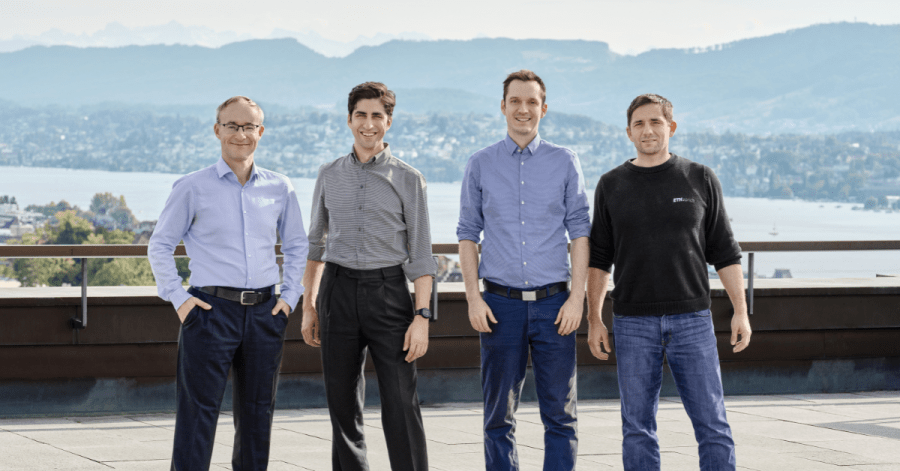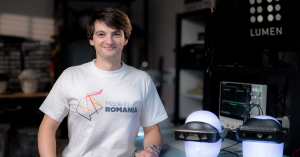- The deep tech startup LatticeFlow, which is co-founded by Bulgarian scientists and enables ML teams to build and deploy trustworthy and robust AI models, raises a $12M Series A round led by leading deep tech European VCs, Atlantic Bridge, and OpenOcean.
- The round is joined by US venture capital firm FPV Ventures and existing investors btov Partners and Global Founders Capital, which participated in the $2.8M seed round of LatticeFlow in 2021.
- The ETH spin-off startup will use the investment to accelerate the development of the first scalable AI platform to automatically diagnose and fix data and model issues in computer vision, and open an office in Sofia, next to INSAIT.
The $12M investment comes after a year of rapid growth in 2022 due to the wide adoption of the first product of LatticeFlow. Its platform for robust AI models has been used by the US Army, Germany’s Federal Office for Information Security, Fortune 500 companies in the US and Europe such as Siemens, as well as world leaders in AI such as Intenseye and Voxel AI. The increasing customer demand was the reason for raising the latest investment.
“The growth potential for LatticeFlow is unprecedented. Our product is indispensable for virtually any company, across any industry, aiming to create and use AI. Our ambition is to establish LatticeFlow as the leading platform in the world for developing real-world AI models,” Petar Tsankov, co-founder and CEO of LatticeFlow, comments on the company’s latest milestone.
Founded in 2020 by a team of AI scientists from ETH Zurich – Dr. Petar Tsankov (CEO), Prof. Martin Vechev, Dr. Pavol Bielik (CTO), and Prof. Andreas Krause, Latticeflow has built the first scalable platform to automatically diagnose and fix AI data and model issues, thus addressing a roadblock to the wider adoption of AI. The fresh investment will be used to fund aggressive hiring and product portfolio expansion.
On a mission to eliminate the blind spots of AI data and models in computer vision
According to the team of LatticeFlow, the global industry invested in AI nearly $500B in 2022 alone, but 87% of the backed projects would not reach production. The reason is that while AI models perform well in lab environments, they often fail when deployed in the real world. This leads to fatal consequences in mission-critical real-world deployments. The mission of LatticeFlow is to enable the creation of trustworthy and working AI systems that perform well in the real world. This would speed up the adoption of AI in all kinds of industries – from manufacturing and transport to medicine, and security. The deep tech startup does that by working with pre-trained AI models instead of training them.
Prior to founding LatticeFlow, the two Bulgarian co-founders of the company, Dr. Petar Tsankov, and Prof. Martin Vechev, exited two other spin-off startups together. In 2020 they sold ChainSecurity to PwC Switzerland, making PwC the world leader in smart contract audits. In the same year, their other venture, DeepCode, an AI-powered platform for code analysis, was acquired by Snyk, a unicorn valued at $2.6B.
Bulgaria moves a step closer to becoming a regional deep tech hub
“The deep collaboration between top research institutes such as Stanford, MIT, ETH Zurich, EPFL, Technion, and others, and high tech companies such as LatticeFlow sits at the core of the world’s most innovative ecosystems such as those found in Israel, Switzerland, and the US. Thus, attracting LatticeFlow to INSAIT is a key step towards positioning Bulgaria as a high-tech destination,” Prof. Martin Vechev, co-founder of LatticeFlow and architect of INSAIT, the first AI institute in Eastern Europe, established in partnership with Switzerland’s ETH Zurich and EPFL.
Dr. Tsankov has shared for The Recursive previously that the local team will work closely with Zurich-based AI researchers and engineers to accelerate platform delivery to global markets. The Sofia-based engineers of LatticeFlow would focus on product design and user experience, as well as front- and back-end development, ensuring the product is quick and easy to install, simple to use, and scales to large and complex datasets and models.







